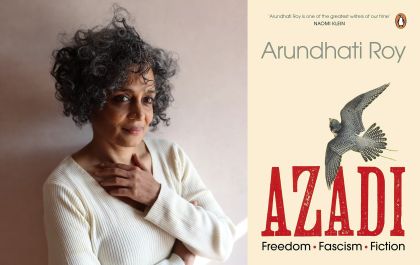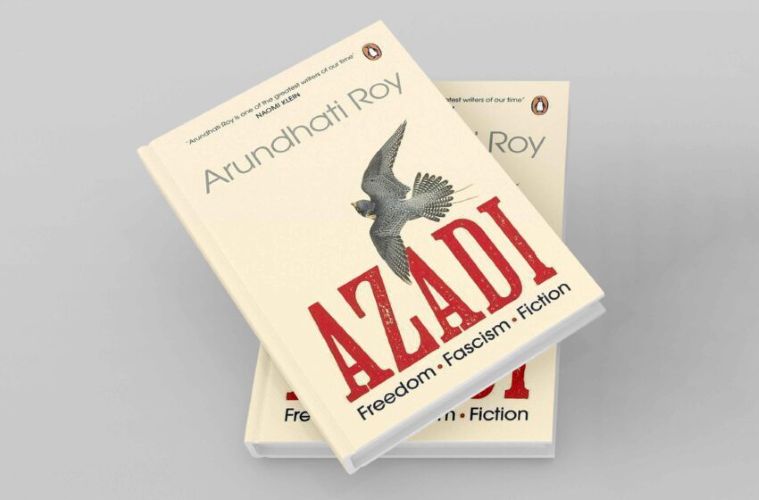Modern India, the Ancient Scars

Review of the book ‘Azadi: Freedom. Fascism. Fiction’, authored by Arundhati Roy, reflecting the harsh realities of contemporary India
Farooq Sargani
‘Azadi: Freedom, Fascism, Fiction’, a book authored by Indian writer and novelist Arundhati Roy, consists of her insightful essays about justice for indigenous communities, ruthless violence of the Bharatiya Janata Party (BJP) government coupled with cruelty of the Rashtriya Swayamsevak Sangh (RSS) and violence against Muslims, Dalits, Christians and poor class of India.
She deeply highlights issues of Kashmir and Assam, and what was happening with indigenous communities. She argues that these massacres were carried out to protect the interests of capitalists rather than the people.
 She also draws attention to India’s growing environmental crisis. She writes stories about the massive corporate attack on forests, rivers, crops, seeds, on land, on farmers, labor laws, on policy-making itself”.
She also draws attention to India’s growing environmental crisis. She writes stories about the massive corporate attack on forests, rivers, crops, seeds, on land, on farmers, labor laws, on policy-making itself”.
She firmly believes that the RSS and BJP are responsible for riot in Hindu and Muslim. She recalls, how the BJP gained momentum, after the massacre at Gujarat, when approximately, 2000 Muslims were slaughtered by Hindu mobs.
A staunch critic of the Modi regime and India’s Capitalists class, who are deliberately razing the natural environment for gaining more profit. Additionally, she also documents unbearable crimes of army against the innocent civilians and freedom fighters all over the India.
She also denounces, the concept of ‘one nation, one constitution, and one language’, which she sees as a tool for cultural domination. She stresses the importance of preserving local cultures and languages, writing:
“India is not really a country. It is a continent. More complex and diverse with more languages_ 780 at last counts, excluding dialects”.
In addition, this book had immense critic of Gandhi about his view on cast system. It changed my perception of Gandhi.
Roy raises another major concern – the dismantling cultural heritage of India. She laments, “Wali Dhakhani’s shrine had been razed to the ground and a tarred road build over it, erasing every sign that it had ever exited”.
In her essay “The pandemic is a portal”, she criticizes government for exporting protective gear and respiratory equipment during the COVID-19 crisis instead of providing them to India’s own health workers and hospitals.
It portrayed the actual image of modern day India. It indicates, India no more remains socialist state anymore, and now transformed into the Capitalist country.
On modern day education system of India, she observes that schools and universities spreading fake narratives of history in young generations. Roy warns, “We are witnessing the re-Brahminization of Education, this time fitted out in corporate clothes.”
Overall, the book is written in a fascinating way, and reflecting the harsh realities of contemporary India.
Read: Book Review: Uthi Haliyoon Istanbul Dy
__________________
 The author is freelance writer. He has graduated from Karachi University
The author is freelance writer. He has graduated from Karachi University




